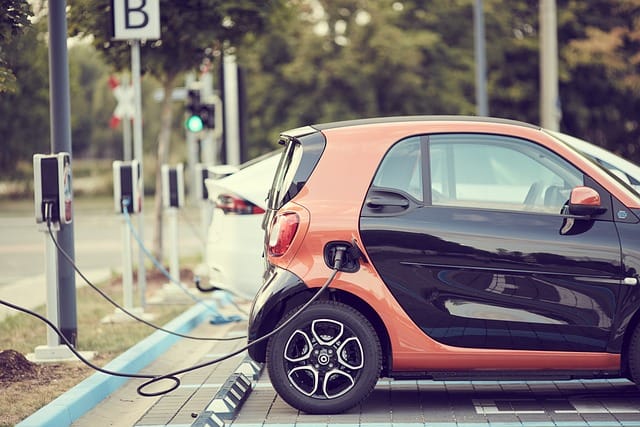Electric cars are no longer just a concept of the distant future—they are becoming a reality on our roads today. As the world increasingly shifts towards more sustainable energy sources and climate change becomes a more urgent issue, electric vehicles (EVs) have emerged as a viable solution for reducing carbon emissions. With advancements in battery technology, government incentives, and a growing charging infrastructure, electric cars and the future of transportation seem more intertwined than ever. But what does this shift mean for the everyday driver, and how will it impact industries, governments, and global energy markets?
In this comprehensive article, we will explore the future of electric cars and how their rise could transform transportation as we know it. We’ll dive into the advantages and challenges of electric cars, advancements in technology, the role of government policy, and much more. By the end, you’ll have a detailed understanding of what lies ahead for electric cars and the future of mobility.
Understanding Electric Cars and the Future
The link between electric cars and the future of transportation is profound. With the environmental challenges we face, transitioning to electric vehicles is not just an option but a necessity. The automotive industry has already begun to pivot, with leading manufacturers like Tesla, Nissan, and even legacy carmakers like Ford and General Motors committing to producing more electric models.
Why Electric Cars Are the Future
One of the main reasons electric cars and the future of transportation are so interconnected is due to the environmental benefits EVs offer. Unlike traditional gasoline-powered vehicles, electric cars emit no tailpipe pollutants, helping to significantly reduce air pollution in cities. As more countries commit to net-zero emissions targets, the transition to electric vehicles is seen as a crucial step in reaching these goals.
Growth in Electric Car Sales
The global market for electric cars is expanding rapidly. According to the International Energy Agency (IEA), electric car sales exceeded 10 million units in 2022, a number that is expected to rise as more affordable models become available. This surge in sales highlights the growing acceptance of electric vehicles, driven by both consumer demand and government policies. For the first time in history, electric cars and the future of transportation are truly becoming inseparable concepts.
Technological Advancements in Electric Cars and the Future
Technological innovation has played a pivotal role in bringing electric cars and the future of sustainable transportation closer together. Improvements in battery technology, charging infrastructure, and energy efficiency have all contributed to the increasing feasibility of electric vehicles.
Battery Technology: The Heart of Electric Cars
One of the most critical factors linking electric cars and the future is battery technology. Lithium-ion batteries, which are commonly used in electric vehicles, have significantly improved in recent years. These advancements have led to longer driving ranges, faster charging times, and lower costs, making electric cars more accessible to the average consumer. New developments, such as solid-state batteries, promise even greater efficiency, with the potential to double driving ranges while reducing charging times.
Autonomous Driving and Electric Cars
Another major technological development that connects electric cars and the future is autonomous driving. Many electric vehicles are being designed with self-driving capabilities in mind, as automation and electric powertrains complement each other well. Companies like Tesla, Waymo, and Uber are all heavily investing in autonomous technology, which could reshape not only personal transportation but also logistics and ride-hailing services. In the near future, electric self-driving cars may dominate the roads, further enhancing the sustainability and efficiency of transportation.
Charging Infrastructure and Its Importance
A key challenge that still faces electric cars and the future of widespread adoption is the development of an extensive charging infrastructure. While gasoline stations are plentiful, electric charging stations are still relatively sparse in many parts of the world. However, progress is being made. Governments and private companies are investing billions of dollars in building fast-charging networks, which will be critical for making electric cars a viable option for long-distance travel.
Vehicle-to-Grid (V2G) Technology
Vehicle-to-grid (V2G) technology represents a new frontier in the relationship between electric cars and the future of energy management. V2G allows electric vehicles to not only draw power from the grid but also return excess energy back into the system. This creates a more efficient energy grid, particularly during peak demand periods. In the long term, V2G technology could transform electric cars into mobile energy storage units, helping to stabilize renewable energy sources like solar and wind.
The Role of Governments in Electric Cars and the Future
Government policies are playing a critical role in the expansion of electric cars and the future of clean energy. Countries around the world are implementing measures to encourage the adoption of electric vehicles, from offering tax incentives to investing in charging infrastructure. These policies are designed to reduce carbon emissions and promote energy independence.
Government Incentives and Subsidies
To promote the use of electric vehicles, many governments offer financial incentives. These can include tax credits, rebates, and lower registration fees for EV owners. In some countries, EV buyers can receive up to $7,500 in tax credits, making electric cars more affordable. As these incentives become more widespread, they help solidify the connection between electric cars and the future of personal transportation.
Bans on Internal Combustion Engines
Several governments are planning to ban the sale of new internal combustion engine vehicles by certain dates, further integrating electric cars and the future of transportation. For instance, the European Union has proposed a ban on gasoline and diesel cars by 2035, while countries like Norway and the United Kingdom aim to phase them out by 2025 and 2030, respectively. These initiatives are pushing car manufacturers to accelerate the development of electric cars.
Infrastructure Development Support
Governments are also investing heavily in the infrastructure needed to support electric cars. In the United States, the Biden administration has committed billions of dollars toward the development of charging stations as part of its infrastructure plan. Similarly, the European Union is supporting the installation of millions of new charging points across member states. These efforts are crucial to ensuring that electric cars and the future of mobility become a reality.
The Environmental Impact of Electric Cars and the Future
The environmental benefits of electric cars are one of the strongest arguments for their future dominance. By reducing the dependence on fossil fuels, electric cars offer a path to cleaner air, lower greenhouse gas emissions, and a more sustainable future.
Reducing Greenhouse Gas Emissions
One of the primary reasons for the focus on electric cars and the future is the potential to dramatically reduce greenhouse gas emissions. Traditional gasoline-powered vehicles are responsible for a significant portion of global CO2 emissions, contributing to climate change. In contrast, electric cars produce zero emissions while driving, making them a critical tool in reducing global carbon footprints.
The Role of Renewable Energy
The true environmental impact of electric cars and the future of green transportation will depend on how electricity is generated. If the electricity used to power EVs comes from renewable sources like solar, wind, or hydropower, the environmental benefits will be even greater. Many countries are transitioning to renewable energy grids, further amplifying the positive impact of electric vehicles on the environment.
Recycling and Sustainability of Batteries
One challenge that often arises in discussions about electric cars and the future is the environmental impact of battery production and disposal. While lithium-ion batteries are essential for electric vehicles, they require the extraction of finite resources like lithium, cobalt, and nickel. Fortunately, advancements are being made in battery recycling technologies, and companies are exploring more sustainable ways to source these materials. As battery recycling processes improve, the environmental impact of electric vehicles will decrease, making them an even greener option.
The Economic Impact of Electric Cars and the Future
As electric cars continue to gain market share, their impact on the global economy is becoming more apparent. The rise of electric vehicles will not only disrupt the traditional automotive industry but also create new opportunities in technology, energy, and infrastructure development.
Job Creation in the EV Industry
The growth of electric cars and the future of sustainable transportation will generate millions of new jobs. From the production of batteries to the development of charging infrastructure, the shift to electric vehicles requires a wide range of skilled labor. Additionally, as electric vehicle sales increase, new opportunities in maintenance, software development, and energy management will emerge, creating a new wave of employment opportunities.
Impact on the Oil Industry
The rise of electric cars and the future of energy independence could spell trouble for the oil industry. As more consumers switch to electric vehicles, the demand for gasoline will decrease, potentially leading to lower oil prices and a decline in revenues for oil-producing nations. This shift could have significant geopolitical implications, particularly for countries whose economies are heavily dependent on oil exports.
The Growth of the Clean Energy Sector
Electric cars and the future of transportation are closely tied to the growth of the clean energy sector. As more people adopt electric vehicles, the demand for renewable energy sources will increase, driving investment in solar, wind, and hydropower. This transition will accelerate the shift away from fossil fuels and help build a more sustainable energy infrastructure.
Challenges Facing Electric Cars and the Future
While the future of electric cars seems promising, there are still several challenges that need to be addressed before they can fully replace internal combustion engine vehicles.
Limited Driving Range and Charging Time
One of the biggest challenges facing electric cars and the future of widespread adoption is the limited driving range of current EVs. While battery technology is improving, many electric vehicles still struggle to match the range of traditional gasoline-powered cars. Additionally, charging times remain an issue, with even the fastest chargers taking 30 minutes or more to fully recharge a vehicle.
High Upfront Costs
Although electric cars can save money on fuel and maintenance in the long run, their upfront costs are still relatively high compared to traditional vehicles. The price of electric vehicles has been decreasing over time, but it remains a barrier for many consumers. Government incentives help mitigate this issue, but further cost reductions will be necessary for electric cars to achieve mass adoption.
Battery Disposal and Environmental Concerns
As mentioned earlier, the production and disposal of electric vehicle batteries raise environmental concerns. The extraction of raw materials for batteries can be damaging to the environment, and the current lack of efficient recycling methods means that many batteries end up in landfills. Addressing these issues will be crucial for ensuring that electric cars and the future of green transportation are truly sustainable.
Conclusion
Electric cars and the future of transportation are intertwined in ways that will transform not only the automotive industry but also the way we think about energy, environmental sustainability, and economic growth. As technological advancements continue to improve the efficiency and affordability of electric vehicles, their adoption will become more widespread, contributing to cleaner air, reduced greenhouse gas emissions, and a more sustainable future.
While challenges such as charging infrastructure, high upfront costs, and environmental concerns around battery production remain, the trajectory of electric cars is clear: they are the future of transportation. Governments, industries, and consumers alike will need to work together to overcome these hurdles and ensure that the shift to electric vehicles leads to a greener, more sustainable world.






